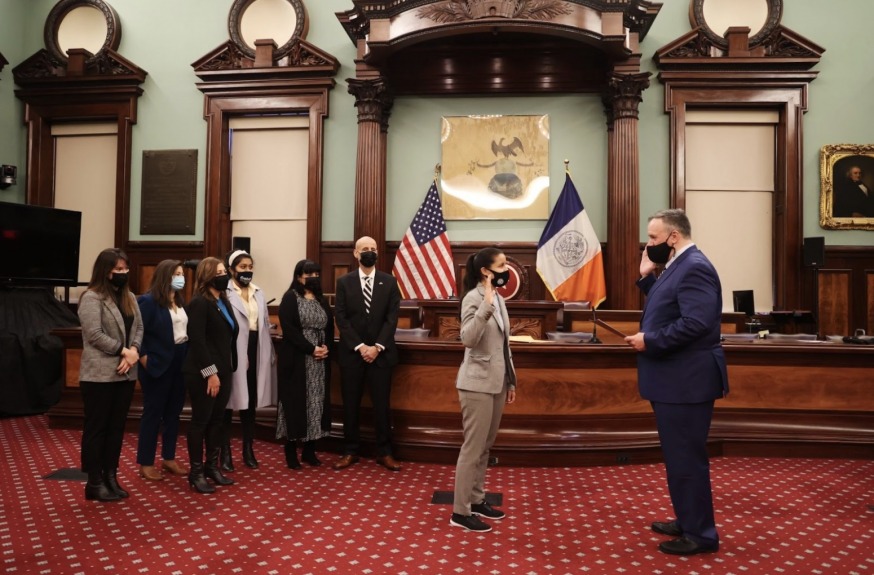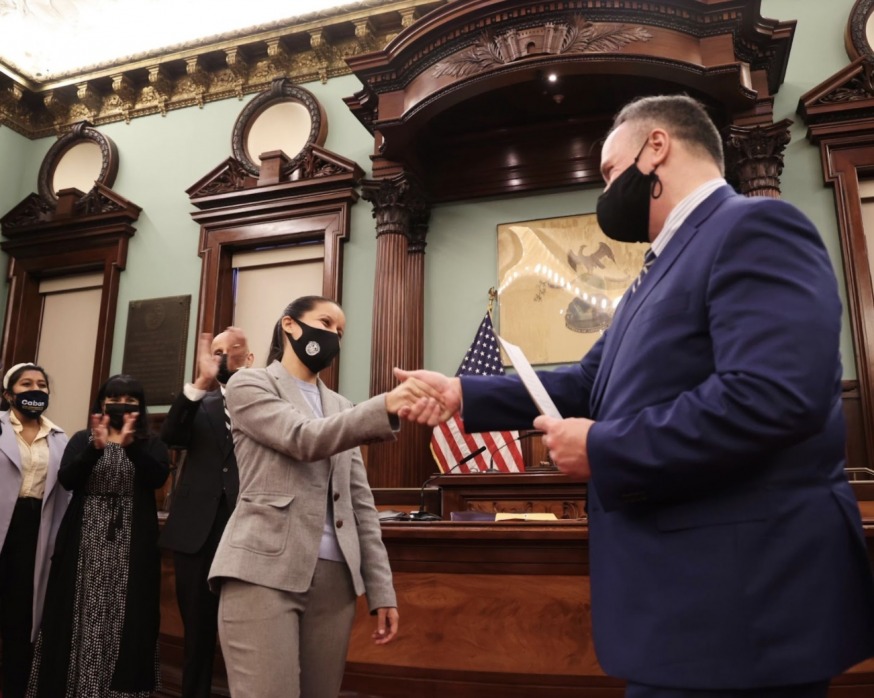
Tiffany Cabán was sworn as the council member for the 22nd Council District Wednesday (Image Credit: Corey Torpie/ Courtesy of Council Member Tiffany Cabán’s Office)
Dec. 2, 2021 By Allie Griffin
Tiffany Cabán was sworn into the City Council yesterday and announced Thursday that she has already signed on as a co-sponsor of 20 bills.
Cabán was officially sworn in as the council member for 22nd Council District — becoming the first woman, first Latina and first queer person to represent the district — in front of a small group of family and friends Wednesday.
She was sworn in early to fill the vacancy left by former Council Member Costa Constantinides who left in April to take a job in the nonprofit sector.
The seat, representing Astoria and Rikers Island along with parts of Jackson Heights, Woodside and East Elmhurst, sat vacant for nearly eight months before Cabán filled it.
“I am honored to become the Council Member for the 22nd Council District, a place that I am proud to call home,” Cabán said in a statement Thursday.
Following her swearing-in, Cabán immediately got to work co-sponsoring 20 bills currently under review. She said the bills aim to improve the lives of New Yorkers.

(Image Credit: Corey Torpie/ Courtesy of Council Member Tiffany Cabán’s Office)
“As Council Member, I am committed to advancing policy that will save lives and investing in the services, supports, and systems that will ensure every New Yorker’s right to a healthy and safe community,” she said.
Some of the bills Cabán signed onto include Intro.1867-2020 which would allow legal noncitizens to be able to vote in city elections, Intro. 2173-2020 which would ban solitary confinement in city jails, Intro. 1926-2020 which would extend paid sick leave to specific gig workers who were excluded, Intro. 2197-2021 which would require the city to prioritize non-profit buyers when selling city-owned land for the development of affordable housing, Intro. 2317-2020 which would ban the use of natural gas in new buildings and major renovations, and Intro. 2374-2020 which would limit class sizes in the city’s public schools.
Cabán also said that she hopes to challenge the status quo of how the city is run to improve equity for all New Yorkers through her new role.
She aims to “dismantle existing inequitable systems of harm and make sure that every neighborhood has the resources it needs to truly thrive,” she said in a statement.
“This is a time to reimagine our city. A time to transform our reality. A time to take a people-centered approach to ending the devastation of the pandemic and rethinking public health,” Cabán said. “And I’m ready to get to work.”
